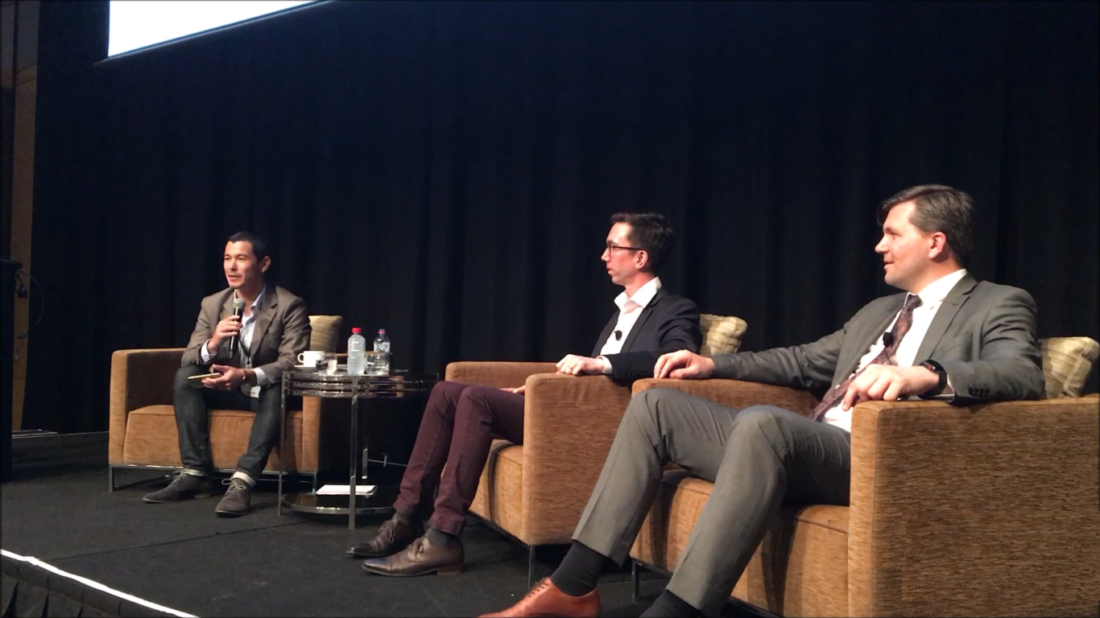On October 31, I had the honour to be one of the speakers on Legal Tech Summit Australia, the conference that called together the leading experts of the legal field. Since it was dedicated to the recent technological changes and the role of AI, in particular, I was invited as a founder of Ailira, the software for tax research and tailored legal consulting. At the series of meetings, roundtables, and panel discussions, we discussed the recent IT findings and how they are forming and will continue to form the fundamentals of the legal field in Australia.
Currently, the influence of AI on the basic tasks and responsibilities of a lawyer is an extremely sensitive issue since many professionals already feel the pressure of the upcoming changes. The organisers of the Legal Tech Summit asked me to share my thoughts on this issue and give some advice on the adaptation to the technological changes and the ways to benefit from them. During the panel discussion “Cutting edge developments in AI legal technology,” together with Athol Birtley, CTO and Co-Founder of KLDiscovery, we have covered a range of questions about IT and the legal field.
Here’s the video of our discussion, and below, you’ll find some key takeaways from the panel.
Cutting Edge Developments in AI Legal Technology: Takeaways
So how has AI been already used in legal practices? I can refer to my personal experience of creating Ailira (Artificially Intelligent Legal Information Research Assistant) and the method she uses to automate legal research and provide information to users. Basically, the work of Ailira relies on natural language processing and machine learning. Natural language processing helps the system to get a better understanding of the English language, deal with user requests with more efficiency, and provide more relevant results. Additionally, Ailira leverages unsupervised machine learning to read millions of cases and pieces of information in legal databases, thus facilitating the work of law and tax professionals. Law experts use Ailira for faster research and can promptly find the exact paragraph related to their request. For the tasks that need more guidance and help, like legal consulting, we also use supervised machine learning. This technology significantly improves communication with users allowing us to ask more directed questions and provide relevant advice.
Are the users ready to interact with such software? Of course, the attitude towards the chatbot functionality offered by Ailira depends on the age and preferences of users. It also depends on the social confirmation from other people since this is the usual way for new technologies to become more common and widely used. Still, our software gradually gains popularity as people like such kind of experience.
Another important thing those who provide AI-based legal services should take into account is that users treat chatbots like human beings. Hence, they are polite and respectful with chatbots, but at the same time, they expect the human level of interaction. So the key task is to adapt the functionality accordingly and ensure the necessary tone of communication. However, it’s important to understand that currently, any chatbot or program is just a robot that can provide some information but doesn’t substitute a lawyer. The software helps to flip through tons of legal documents and find the exact passage saving the time of users. Yet if a customer needs a more personalized talk, has complicated questions or issues that should be discussed, that’s the task for layers. This way, Ailira satisfies the basic needs of legal consulting, leaving more complex cases for personal communication.
Future impact of AI on the legal field. Firstly, it’s worth noting that nobody can stop the progress, and it’s absolutely normal that AI is everywhere. In a way, it infuses our lives and changes many fundamental things. Actually, anyone who has the relevant knowledge can try to leverage the possibilities of AI to solve a particular problem and use it to automate processes and achieve higher efficiency. Living and working in the modern world isn’t about waiting for the time when AI will replace us. It’s about ways to entrust computers some tasks and manage the process.
How can AI improve the profitability of law firms? You can reduce the cost of practice making it less time-consuming, or even automate communication with customers. At the same time, it’s necessary to remember about ethics and liability. The provision of information isn’t the same thing as professional advice, and both lawyers and citizens must keep this in mind.
Generally, this was a fruitful discussion, which I really enjoyed as it helped to clarify some pressing issues and explain the role of AI in legal practices, key benefits of new technological developments, and the position of a lawyer in the highly-automated future. I believe this will inspire many people to embrace the opportunities offered by AI.
Adrian Cartland is the Creator of Ailira, the Artificial Intelligence that automates legal information and research, and the Principal of Cartland Law, a firm that specialises in devising novel solutions to complex tax, commercial, and technological, legal issues and transactions.

